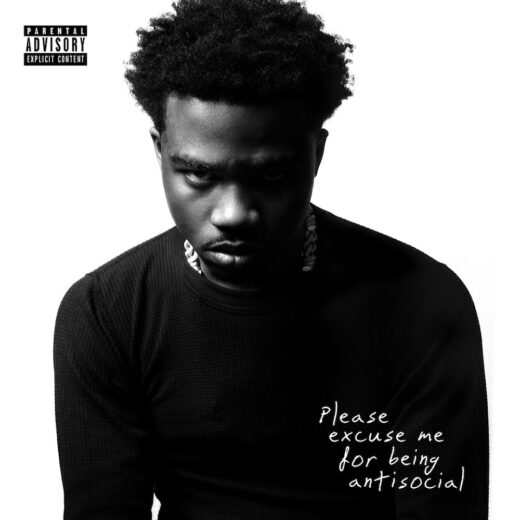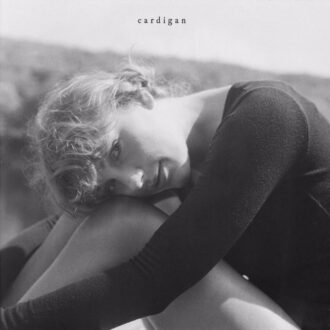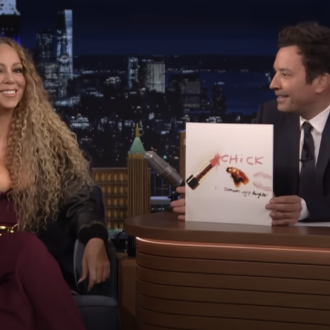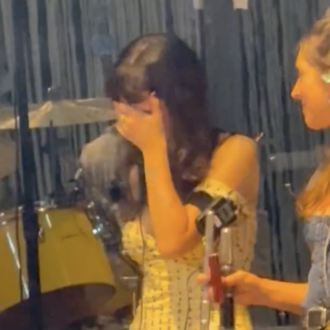In The Number Ones, I’m reviewing every single #1 single in the history of the Billboard Hot 100, starting with the chart’s beginning, in 1958, and working my way up into the present. Book Bonus Beat: The Number Ones: Twenty Chart-Topping Hits That Reveal the History of Pop Music.
The ee-urr is the hook. It’s not the only hook, but it’s the one that matters. Roddy Ricch’s “The Box,” the first chart-topper of the 2020s, is a tight, springy little marvel of recent-vintage melodic rap, and it’s got lots of elements that can catch your ear. There’s the swollen orchestral intro, the thunderous entrance of the 808s, and the sleek, playful way that Roddy Ricch approaches the churn of the beat, adding in a new cadence every few seconds. But every gigantic song needs at least one little extra thing that makes it stand out. For “The Box,” that thing was the ee-urr — the strange and ear-catching sound effect that repeats all through the track.
On TikTok, the ee-urr became a point of comedy. People posted little skits highlighting all the things that ee-urr recalled — windshield wipers, Windex rags, squeaky sneakers on hardwood, smoke alarms that need their batteries changed. For reasons that nobody could ever quite articulate, that weird, hypnotic repeated sound elevated “The Box” and transformed it into a phenomenon. When “The Box” stormed the Hot 100 and then remained atop the chart during a moment of profound cultural turbulence, lots of people tried to figure out why the song was as big as it was. Roddy Ricch was an ascendant major-label rap prospect before “The Box,” but nobody expected him to shoulderblock global pop stars out of the top spot the way that he did. “The Box” wasn’t even picked as a single before it blew up, and its music video didn’t come out until the song had already been stuck at #1 for more than a month. How did this song explode so quickly? Why did it maintain its hold for as long as it did? Could it really just be the ee-urr? Yes. Yes, it could.
The ee-urr was a last-minute addition to a last-minute song. When Roddy Ricch recorded “The Box,” he was nearly finished with his first proper album Please Excuse Me For Being Antisocial. He’d been working on that album for a while, and he had his label behind him. Roddy had already made a handful of viral hits and cracked the Hot 100 a few times, and people had big plans for him. The LP has contributions from some famous guest-rappers and producers, and a few early singles were already locked in. When he made “The Box,” Roddy Ricch was in a New York studio early in the morning, finishing a productive all-night session. This was his general working process — get a ton of beats and record over those beats, almost indiscriminately, in marathon sessions. Roddy’s engineer once estimated that he recorded 250 tracks while putting his album together. That workaholic flow-state method doesn’t seem like it could or should lead to great, dominant, successful pop songs, but the world is a fascinating place. Mysterious things happen all the time.
Picture yourself in Roddy Ricch’s situation. You’re 21 years old, and you’ve got a chance to make a real impact. People have money invested in you. They have hope invested in you. But nothing is guaranteed. So you work. You work all the time. You spend entire nights rapping, words tumbling out of your mouth until those words threaten to lose all meaning. You’re all the way across the country from your home, and you’re on one of your creative benders. It’s six or seven in the morning. Maybe the New York sky is purple just before dawn. Maybe the sun is just cracking the horizon. Your head is cloudy from exhaustion and maybe from whatever substances you use to push you through those all-night sessions. But you’re not done. You hear a beat, a dramatic string fanfare with some booming drums, and it ignites something in you. You attack that track, splashing your voice over it in patterns that not even you can predict. When you’re done, you know that you have made something special. But it still needs something. It needs the ee-urr.
According to pretty much everyone who worked on “The Box,” the ee-urr was Roddy Ricch’s idea. The sound is his voice. He’d finished recording the song, but he told his engineer and his A&R guy that he just added one more thing. He jumped back in the booth and made that squeaky noise, the one that always sounded like a creaky door to me. I would love to know more about what it takes to arrive at that moment — how tired you must be, how high, how deep in your own creative process, to realize that the final touch your song needs is a nonverbal loop of you imitating a very determined squirrel. Inspiration takes so many different forms, and that is one of them.
Lots of pieces had to fall into place for Roddy Ricch to make that ee-urr. Maybe his whole life was divinely plotted out, leading up to that moment. Rodrick Wayne Moore Jr. grew up moving back and forth between Los Angeles and Compton. (When Roddy was born, the Barenaked Ladies’ “One Week” was the #1 song in America.) His father wasn’t around, and his mother raised him in the church — the same church, as it happened, that past and future Number Ones artist Kendrick Lamar attended. When Roddy was a kid, he got his courage up and asked if he could rap some bars for Kendrick, and Kendrick said encouraging things. Roddy played basketball and went to therapy, but he also got involved in street life. He committed robberies, wrecked a car, and faced a gun charge. (Later on, he was also charged with felony domestic violence, but it was dropped.) In a 2020 Rolling Stone profile, Roddy remembers the moment, sitting in jail, that he realized he had to figure his shit out. That, he says, is when he started taking rap seriously.
Pretty soon, rap itself was taking Roddy Ricch seriously. There was never anything particularly California about his sound. Instead. Roddy grew up on the skittering, moaning Atlanta trap of Future and Young Thug, as well as Lil Durk’s Chicago variation on that stuff. Speaker Knockerz, the South Carolina sing-rapper who died in what was probably a freak carbon monoxide accident at age 19 in 2014, was a particular inspiration. As a kid, Roddy spent time in both Atlanta and Chicago, so maybe that’s part of the reason that he has never sounded like he’s from any one particular place. Or maybe that’s just a function of the internet.
Roddy belongs to a generation where region and environment didn’t always define a rapper’s perspective. He developed a style — quick bursts of staccato syllables that stretch into elongated singsong gurgles, all delivered in a bluesy chirp-rap. Melody is built into his delivery. He doesn’t sing, exactly, but his rapping always comes out sounding like singing. That was the pan-regional sound of street-rap in the late ’10s, and Roddy came off like a blurry combination of all the most obvious influences. That meant that his own personality could get lost, but it also meant that he was good at a particular thing.
Roddy Ricch’s debut mixtape Feed Tha Streets came out in 2017, just a few weeks after his 19th birthday. People started to notice. Some of his tracks went viral. Nipsey Hussle, a major figure in West Coast rap, took Roddy under his wing. On the 2018 night that former Number Ones artist XXXTentacion was murdered, Roddy recorded “Die Young,” a general lament about impermanence, over a twinkling beat from London On Da Track, a big-deal producer in the Atlanta trap world. That song made enough noise to crack the Hot 100, where it peaked at #99. Around the same time, Roddy signed to Atlantic and released his Feed Tha Streets II mixtape. He started showing up on tracks with big-deal rappers, as well as the masked dance producer Marshmello.
2019 was a big year for Roddy Ricch. He started it out singing the hook on “Racks In The Middle,” a single that Nipsey Hussle released just before he was murdered. (After Nipsey’s passing, “Racks In The Middle” peaked at #26. It’s Nipsey’s highest-charting single as lead artist.) Soon after that, Roddy was named an XXL Freshman, part of the same class as future Number Ones artists DaBaby and Megan Thee Stallion. Near the end of the summer, the West Coast rap producer Mustard released his album Perfect Ten, and its biggest track was “Ballin’,” a solo showcase for Roddy Ricch. It’s a slick, exuberant, celebratory singalong that still rivals “The Box” as my favorite Roddy Ricch track, and it grew slowly for months, finally peaking at #11 on the Hot 100 in January 2020. (“Ballin'” is still Mustard’s biggest hit as lead artist. As a producer, he’ll eventually appear in this column.)
In the final months of 2019, Roddy Ricch released the singles intended for his actual debut album, and none of them had the same spark as “Ballin’.” “Big Stepper,” the Gunna collab “Start Wit Me,” “Tip Toe” with A Boogie Wit Da Hoodie — these were all solid street-rap tracks that sounded extremely of their era. But even with B-list rap-star collaborators and expensive-looking videos, they didn’t stand out, though all of them charted. (“Big Stepper” peaked at #98 on the Hot 100, “Start Wit Me” at #56, “Tip Toe” at #73.) Roddy’s sound was a playlist-friendly amalgam of everything that was happening in rap right then, and his hooks had a way of sneaking up on you. His LP Please Excuse Me For Being Antisocial came out in early December and moved about 100,000 album-equivalent units — good enough to debut at #1 in a slow week. Lots of people streamed that album, and many of them evidently got stuck on “The Box,” its first proper song.
Once Mariah Carey’s “All I Want For Christmas Is You” ended the first of its annual holiday-season runs at #1, the 2020 pop-music year was supposed to start with the return of a very big name. Justin Bieber, someone who’s been in this column a bunch of times and who will return, released his newlywed-bliss meditation “Yummy,” his first proper solo single in a couple of years. “Yummy” got a huge push, despite being an actual terrible song. (It’s a 3.) Def Jam and Bieber’s powerful manager Scooter Braun built a marketing campaign around “Yummy,” and Bieber himself went public with his flop-sweaty attempt to push the song to #1. In an embarrassing moment, Bieber reposted and then quickly deleted an Instagram with a handy guide for his fans to push “Yummy” to the top. That post asked Beliebers to buy the single multiple times and to build playlists with the track on repeat, keeping those playlists running all night: “Don’t mute it! Play it at a low volume. Let it play while you sleep.” It requested fans outside the US to buy VPNs, so they could add to the track’s Billboard total. It was just unbelievably corny. You can imagine the schadenfreude that some of us felt when the first-week numbers came in and “Yummy” got stuck at #2 behind “The Box,” a non-single from a rookie rapper.
God, that was satisfying. When his chart victory was secure, Roddy Ricch tweeted, “stream yummy by justin bieber,” with the bicep-flex emoji. It was so much fun to root for him in that moment. This was the very beginning of the period when fan armies mobilized online to assist their favorites on the Hot 100, a phenomenon that’s going to play a role in way too many future columns. But all the efforts of Def Jam, Scooter Braun, and the Beliebers weren’t enough to vanquish this underdog banger that had something else in its favor. “The Box” had TikTok, and TikTok made all the difference. The song didn’t latch onto any one particular TikTok trend. People danced to it, but it didn’t have its own dance. They did comedy skits about the ee-urr, and those were fun, but I don’t think they were what turned “The Box” into a juggernaut. If you pull up compilation of TikTok clips set to “The Box” — there are lots of them — you might not see any particular pattern. It was just a cool, dramatic song, and people liked the way that they looked with it playing in the background.
Here’s where we get beyond the ee-urr and talk about how “The Box” is just a great rap song. Even without the ee-urr, the cinematic swell of the intro catches you right away. “The Box” has three credited producers, but the main one seems to be Samuel Gloade, known professionally as 30 Roc, a Bronx native who came up as a protege of Atlanta trap hitmaker Mike Will Made-It. 30 Roc first made an impact when he produced “Nasty Freestyle,” a freak viral smash that the Houston rapper T-Wayne released in 2015. (“Nasty Freestyle” peaked at #9. It’s an 8.) In the years that followed, 30 Roc co-produced hits like “Rake It Up,” from Yo Gotti and Nicki Minaj, and “Bartier Cardi,” from Cardi B and 21 Savage. (“Rake It Up” peaked at #8. It’s a 7. “Bartier Cardi” peaked at #14.) There was never really any particular 30 Roc sound. He was just a producer you’d see in Wikipedia-page credits and think, “Oh, that’s funny, that guy named himself after 30 Rock.” But the tracks I just mentioned all have a certain pop-friendly bounce, and I don’t really hear that in “The Box.”
30 Roc co-produced “The Box” with two guys who don’t have a lot of credits to their names, Datboisqeeze and ZenTachi. There are a couple of other credited songwriters, too: Khirye Tyler, someone who did a lot of work on the last Beyoncé album, and Larrance “Rance” Dopson, the co-founder of the musical collective 1500 Or Nothin’. I don’t know what those guys contributed to “The Box.” I do know that the opening orchestral flourish is Roland plug-in, a pre-recorded toy for producers. When 30 Roc and his collaborators found that sound, they knew they could build something from it, and it really does set a majestic mood. It sounds like storm clouds gathering, helicopters taking off, tank engines rumbling to life. That swell of strings is mixed way quieter than the ee-urr, but you can still feel it. Something is about to happen, and then something does. When the beat kicks in, it’s thunderous, partly because Roddy Ricch starts rapping a split-second before the first drum-hit lands. It makes for a real adrenaline-rush moment.
“The Box” isn’t a song about any one particular thing. There’s not even much consensus about what the titular box is. It’s probably a detachable magazine cartridge, but it could also be jail. It’s probably not a vagina — not in this case, anyway. It’s definitely not a cardboard box, though there’s a funny bit in the video where Roddy is rapping on a conveyor belt in a literal box factory that’s populated entirely by women in underwear. If Principal Skinner took Bart Simpson on a field trip to that box factory, Bart might not be so disappointed. Anyway, you don’t have to understand the connotations of everything that Roddy Ricch says on “The Box.” What the song conveys is sheer exhilaration, the feeling of bending the world to your will. Even when Roddy talks about drinking codeine cough syrup and going into sloth mode — “pour up the whole damn seal, I’ma get laaaaazy” — he sounds like he’s got electricity coursing through him.
Roddy Ricch’s “The Box” lyrics are free-association, but he hits them with purpose. On the first verse, he cruses the city in a bulletproof Cadillac, his stashbox full of illicit substances, on the lookout for the people trying to rob him. Then he’s dunking with his elbow in the rim like Vince Carter, bragging about how his girl looks like Aaliyah, and waiting for the day when he gets the key to the city of Compton. His flow lurches into different gears, sometimes hitting erratic pauses and weird emphases for effect: “I! Got! The pink! Slip! All! My whips! Is key-less!” My favorite part of the second verse is the bit where he transitions from announcing a run for national office into putting a six-figure bounty on Trayvon Martin’s murderer and then getting right back to street shit: “I’m a 2020 president caaaandidate/ I done put a hundred bands on Zimmerman, shit/ I been moving real ganster, so that’s why she picked a Crip/ Shawty call me Crisco ’cause I pop my shit.” It’s incredibly fun to rap along to “The Box,” especially at the climactic moment where Roddy enforces guest etiquette: “Bitch, don’t wear no shoes in my house!” I don’t know how he makes that line sound anthemic, but he does.
“The Box” struck a nerve. After the song boxed Justin Bieber out of the #1 spot, it held onto that spot for a long time. Roddy Ricch and Atlantic weren’t necessarily ready for “The Box” to become what it became. The world got behind that song before they did. But they adapted. Roddy and Christian Breslauer co-directed an insane video for “The Box,” which came out a month after the song reached #1. The video uses CGI to free-associate the way that Roddy does verbally on the song. I would’ve preferred a more bare-bones, atmospheric clip, but it’s fun to see the goofy shit they come up with — a Fast & Furious pastiche, a bank-vault heist, a halfassed re-staging of the last Scarface scene, an ending where a tiny Roddy is trapped in a glass case at an art museum. Watching it feels like flipping through movie channels while stoned.
While “The Box” was stuck at #1, the world changed. During the song’s tenure on top, the COVID-19 virus swept across the world and arrived in the US. Everything shut down suddenly in mid-March. Thousands of people died every day. Trips to the grocery store felt like supply runs in the apocalypse. The feeling of facemask straps around your ears became extremely familiar. The world changed, but people still kept listening to “The Box.” That was a fucked up time, but I can hear “The Box” today without flashing back on it too hard. That probably says something about the song’s durability.
None of the other tracks from the Please Excuse Me For Being Antisocial album resonated like “The Box,” though one of them, the Mustard-produced “High Fashion,” reached #20. The album still went double platinum, and “The Box” went diamond in 2021. Roddy Ricch became one of those rappers who shows up on tracks with every other big rapper, and some of the songs that he appeared on became hits. But the excitement around Roddy was short-lived. It was weird. When his sophomore album Live Life Fast came out in 2021, it seemed like nobody was checking for Roddy Ricch anymore. The album didn’t even go gold. Lead single “Late At Night” peaked at #20, and he hasn’t been back on the Hot 100 as lead artist since then. Roddy didn’t hit some sudden artistic decline. He just wasn’t hot anymore.
Last year, Roddy Ricch was a surprise guest at Kendrick Lamar’s Pop Out concert, and he got a warm reception, but it wasn’t anything like the hero’s welcome that Tyler, The Creator received. A few months later, Roddy sang backup vocals and got off one great line — “fifty on me, don’t die tryin’ and shit” — on the extremely smooth Kendrick track “Dodger Blue,” which peaked at #11. Right now, Roddy Ricch is just 26, so he could always strike gold again. But Roddy just released a new full-length called The Navy Album last Friday, and I only learned of its existence because I researched this piece, which is not a good sign. He’s probably not going to overshadow the new Justin Bieber record this time.
Roddy Ricch never fully came off as a star. He was just a guy who had a moment. That’s fine because the moment was great. There are lots of rappers who do come off as stars but who will never make a song as big or as good as “The Box.” And anyway, Roddy Ricch’s moment didn’t end with “The Box.” In a guest-rapper role, he will be back in this column soon.
GRADE: 9/10
BONUS BEATS: Lots of people recorded freestyles over the beat from “The Box.” Here’s my favorite of them, Smino’s “Jamie Boxx”:
BONUS BONUS BEATS: A couple of months ago, Will Ferrell told a baffled Stephen Colbert that Roddy Ricch was his first concert. Here’s that moment:
— Stereogum (@stereogum.bsky.social) May 1, 2025 at 1:11 PM
THE NUMBER TWOS: “Don’t Start Now,” the Dua Lipa neo-disco banger with the absolutely ridiculous bass action, peaked at #2 behind “The Box.” It’s a 9.
The Number Ones: Twenty Chart-Topping Hits That Reveal The History Of Pop Music is out now via Hachette Books. I just hit a lick with the book. Buy it here.




